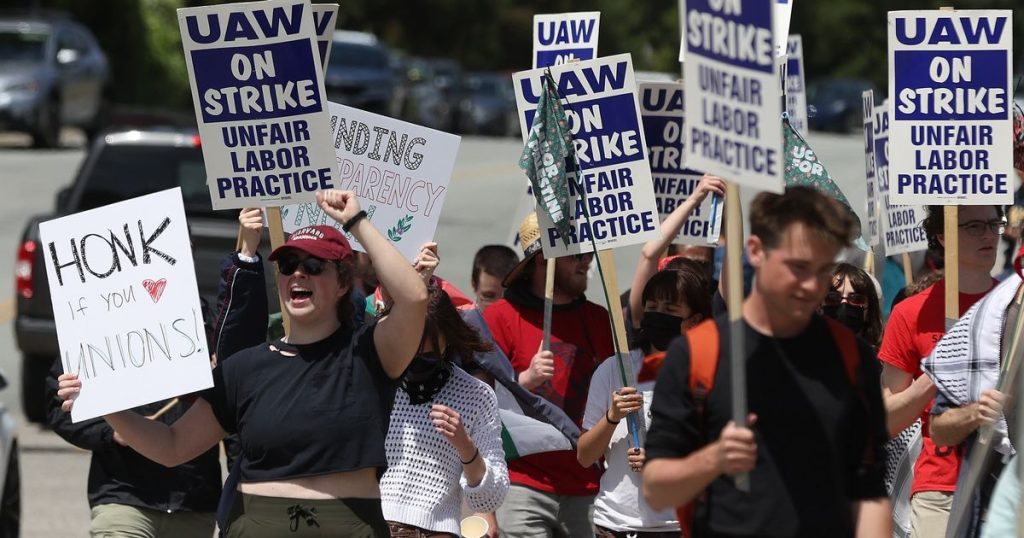Academic workers at a university have initiated a work stoppage as a form of protest against the crackdown on campus demonstrations. The workers are taking a stand against what they perceive as restrictive measures imposed by the university on their right to express their opinions and engage in activism on campus. This act of protest highlights the tension between academic freedom and institutional control, as the university claims that the work stoppage is illegal. The workers’ actions raise important questions about the boundaries of free speech and dissent within academic institutions, and the university’s response reflects the challenges of balancing order and freedom in higher education settings.
The decision of academic workers to walk off the job in protest signals a deep-seated commitment to defending their rights and advocating for change within their academic community. This act of collective action demonstrates the power of organized labor in challenging oppressive policies and advocating for social justice on campus. By withholding their labor, the workers are leveraging their collective strength to demand greater accountability and transparency from university administrators. The work stoppage serves as a powerful reminder of the role that academic workers play in shaping the culture and values of their institutions, and their willingness to take a stand against injustice.
The university’s portrayal of the work stoppage as illegal reflects a broader trend of crackdowns on dissent and protest within academic settings. The administration’s response to the workers’ actions raises concerns about the erosion of academic freedom and the stifling of critical discourse on campus. By labeling the work stoppage as unlawful, the university is attempting to delegitimize the workers’ grievances and undermine their ability to advocate for change. This response highlights the challenges faced by academic workers in asserting their rights and challenging institutional power structures within higher education.
The conflict between the academic workers and the university administration sheds light on the complex dynamics at play within academic institutions. The workers’ decision to walk off the job in protest raises important questions about the limits of institutional control and the role of dissent in fostering a vibrant intellectual community. By taking a stand against the crackdown on campus demonstrations, the workers are asserting their right to engage in critical dialogue and challenge existing power structures. The university’s response, on the other hand, reflects a desire to maintain order and control within the institution, even at the expense of academic freedom and free speech.
The work stoppage by academic workers highlights the need for greater dialogue and collaboration between university administrators and faculty members. By engaging in collective action and advocating for change, the workers are challenging the status quo and pushing for a more inclusive and equitable campus environment. The university administration’s response to the work stoppage underscores the importance of fostering open communication and addressing the concerns of all stakeholders within the academic community. This conflict serves as a reminder of the ongoing tensions between institutional control and academic freedom, and the need for greater transparency and accountability in decision-making processes within higher education settings.
In conclusion, the work stoppage by academic workers to protest the crackdown on campus demonstrations raises important questions about the boundaries of free speech and dissent within academic institutions. The conflict between the workers and the university administration highlights the challenges faced by academic workers in asserting their rights and advocating for change in higher education settings. By taking a stand against oppressive policies and advocating for greater accountability, the workers are asserting their role as critical agents of change within their academic community. The response of the university administration underscores the need for open dialogue and collaboration in addressing the concerns of all stakeholders within the institution. Ultimately, this conflict serves as a reminder of the ongoing struggle to balance order and freedom in higher education, and the need for greater recognition of the rights and voices of academic workers in shaping the future of their institutions.


